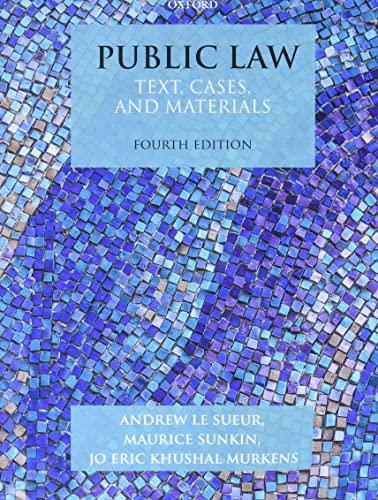Question
Reflect on a public Facebook page posting by a university student who wrote, I no longer fear Hell, I took a course with Professor Smith.
Reflect on apublicFacebook page posting by a university student who wrote, "I no longer fear Hell, I took a course with Professor Smith."
Part 1:
We believe that a student is within their rights to post such a statement about their professor. We base this claim on the idea of two premises, firstly, the content and nature of the statement and secondly, the idea of qualified privilege.
Argument 1: The first argument is based on the content and nature of the statement, we believe that the student is within their rights and is free to post their opinion where and when they choose. The reasoning behind this is because so long as the student is sharing their own personal opinions or beliefs about a professor, there can be no claim of defamation or libel and thus no violation of the professor's rights. An opinion is a subjective take or perspective about a situation, topic or thing.
Argument 2: The second argument is that the student has qualified privilege. "Privilege is a special legal right or immunity granted to a person or persons. Qualified privilege is immunity or protection from the penalty of a lawsuit, usually a lawsuit for defamation, for acts committed in the performance of a legal or moral duty and acts properly exercised and free from malice". The student feels that his opinion is a moral duty to other students in the college/university to state the course with the professor is extremely difficult and that in his opinion it is comparable to "hell"
In conclusion, a student posting an opinion about their professor is within their rights and does not violate the rights of their professor, nor does it meet the criteria to be considered defamation or libel. The nature of the post combined with the criteria of qualified privilege indicated that the student is within their rights and not in violation of the rights of their professor. An opinion that is not materially false and can be reasonably determined to be an opinion while meeting the requirements of qualified privilege, the student has not violated any of the professor's rights, nor can be held liable for defamation or libel.
Question: Discuss the consequences of the position taken in the first part of the paper in terms of consequences for;
- Students
- Professors
- Education at universities as a whole
- Consequences for other situations where these same rights may arise and collide
Note: Discuss these consequences with Business Law as your base.
Step by Step Solution
There are 3 Steps involved in it
Step: 1

Get Instant Access to Expert-Tailored Solutions
See step-by-step solutions with expert insights and AI powered tools for academic success
Step: 2

Step: 3

Ace Your Homework with AI
Get the answers you need in no time with our AI-driven, step-by-step assistance
Get Started


